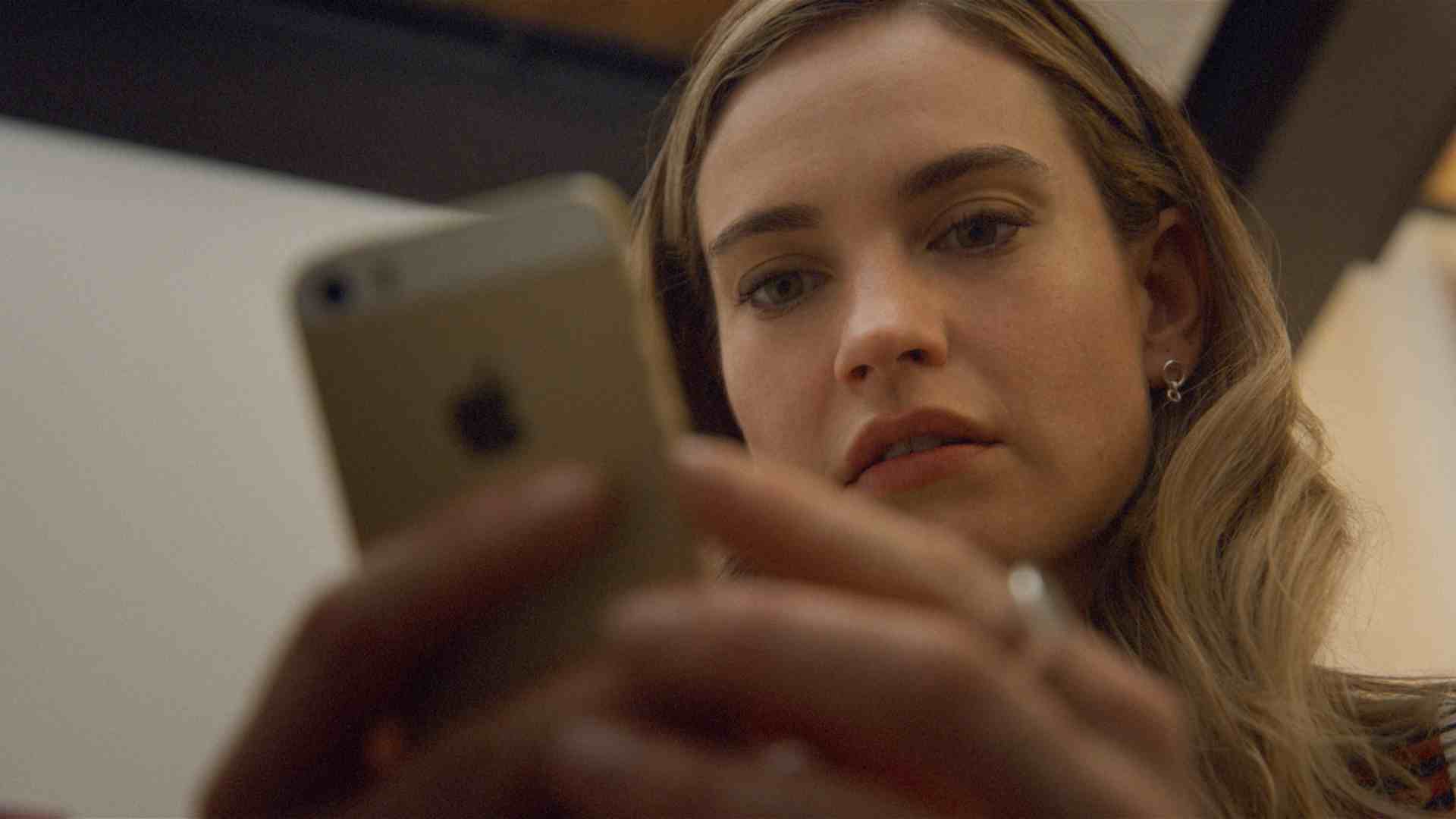Swiped charts the rise of Tinder and the arc of millennial feminism
The biopic tracks Whitney Wolfe Herd from Tinder to Bumble, and takes a swipe at millennial feminism for good measure.
Photo: Hulu
As Andy Warhol surely would’ve put it if he’d lived to see the smartphone era: In the future, every tech startup will get their 15 minutes of cinematic fame. Facebook, Apple, Uber, WeWork, Theranos, and BlackBerry have all had their ripped-from-the-headlines biopics/miniseries. Now it’s dating apps that take center stage in Hulu’s drama Swiped, which follows entrepreneur Whitney Wolfe Herd (Lily James) and her contributions to the early days of both Tinder and Bumble. While Swiped doesn’t reinvent the startup origin story subgenre, its zippy direction and comedic self-awareness make it easy to swipe right on its rollercoaster of defeat, redemption, and millennial womanhood. In fact, the most interesting (and, occasionally, most frustrating) choice director/co-writer Rachel Lee Goldenberg (Valley Girl, Unpregnant) makes is to use Whitney’s story as a metaphor for the broader arc of 2010s white feminism.
It’s 2012, “tech disruptor” bros are everywhere, and Whitney is trying to make a name for herself as one of the few women in the world of app development. While she’s frustrated by how often she gets hit on instead of listened to at L.A. networking events, she also knows how to play the game. When CEO Sean Rad (Ben Schnetzer) impulsively asks her to join a pitch meeting for his Cardify app, she brings a flirtatious edge that helps him seal the deal with a couple of middle-aged execs. When Sean offers her a job at his incubator, her instinct is to establish herself as the favorite woman in the male-dominated office—the girl who’s “not like other girls.”
The opening act takes on a bright, shiny, almost rom-com sheen, as Whitney takes point on the incubator’s new dating app, MatchBox, which she helps redub Tinder. She uses her experience as a sorority girl to pitch the app to millennial college students, all while falling into a whirlwind romance with her boss Justin Mateen (Jackson White). Goldenberg’s camera lingers on the moments Whitney speaks over a female colleague or fails to share credit with her friend and co-worker Tisha (Myha’la), but, for the most part, the first act of Swiped is awash in the thrill of forging something new. The “We Will Never Die” vibes are high.
As with The Social Network and BlackBerry, there’s a compelling procedural aspect to the history lesson about how Tinder revolutionized modern romance at a time when online dating was seen as something for old people. That alone could’ve sustained a simpler film, but Swiped takes a sharp left turn in its second act, as Whitney’s relationship with Justin becomes strained, her role as a co-founder of the app comes into question, and Tinder’s problem with unsolicited dick pics and harassing messages reaches a boiling point—something the other women in the office expect Whitney to speak up against.
 Keep scrolling for more great stories.
Keep scrolling for more great stories.
